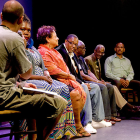
N.Y. Film Festival Unites New Yorkers to be Better Fathers
|
What started as a “Kickstarter-type” project quickly developed into New York City’s first ever film festival based solely on the topic of fatherhood.
Juvenile Justice Information Exchange (https://jjie.org/page/319/)

In late September, Torri was driving down the highway with her 11-year-old son Junior in the back seat when her phone started ringing.
It was the Hamilton County Sheriff’s deputy who worked at Junior’s middle school in Chattanooga, Tennessee. Deputy Arthur Richardson asked Torri where she was. She told him she was on the way to a family birthday dinner at LongHorn Steakhouse.
“He said, ‘Is Junior with you?’” Torri recalled.
Earlier that day, Junior had been accused by other students of making a threat against the school. When Torri had come to pick him up, she’d spoken with Richardson and with administrators, who’d told her he was allowed to return to class the next day. The principal had said she would carry out an investigation then. ProPublica and WPLN are using a nickname for Junior and not including Torri’s last name at the family’s request, to prevent him from being identifiable.
When Richardson called her in the car, Torri immediately felt uneasy. He didn’t say much before hanging up, and she thought about turning around to go home. But she kept driving. When they walked into the restaurant, Torri watched as Junior happily greeted his family.
Soon her phone rang again. It was the deputy. He said he was outside in the strip mall’s parking lot and needed to talk to Junior. Torri called Junior’s stepdad, Kevin Boyer, for extra support, putting him on speaker as she went outside to talk to Richardson. She left Junior with the family, wanting to protect her son for as long as she could ...

What started as a “Kickstarter-type” project quickly developed into New York City’s first ever film festival based solely on the topic of fatherhood.

Many cases speak to the need for reform to ensure the rights of young suspects are protected during police questioning.

The MacArthur Foundation announced it will increase its juvenile justice reform funding by some $15 million, a major part of which will be used to establish the new Models for Change Resource Center Partnership.
“Right now there are no go-to places to get the kind of information, resources, toolkits, [and] access to colleagues who have ‘been there done that,’” for would-be juvenile justice reform advocates, said Laurie Garduque, director of justice reform for the MacArthur Foundation.
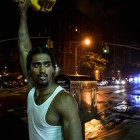
The streets are about to become safer for black and Latino teens who have been increasingly subjected to routine stop and frisks by the NYPD.
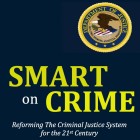
“As the so-called ‘war on drugs’ enters its fifth decade, we need to ask whether it, and the approaches that comprise it, have been truly effective,” Holder stated.
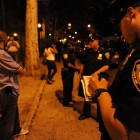
Gritty photos from time Robert Stolarik spent cataloguing the controversial practice of stop and frisk in New York City.
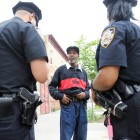
Before June 2010, when Robert Stolarik visited the Brownsville Houses for an assignment to cover what was being touted as a new anti-crime policy implemented by the NYPD, he had never heard of Stop and Frisk.

The NYPD’s stop and frisk policies created a “self-perpetuating” cycle of minority arrests, Judge Shira Scheindlin said.